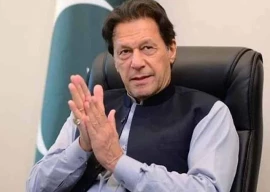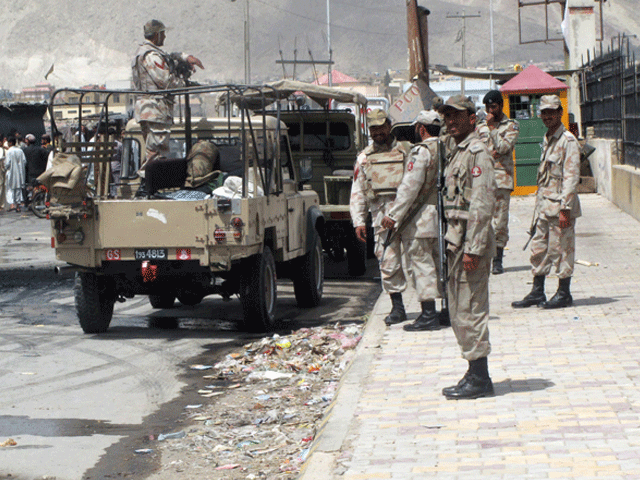
Shortly after midnight, Indonesian Freddy Budiman, Nigerians Michael Titus Igweh and Humphrey Ejike and South African Gajetan Acena Seck Osmane were executed by firing squad, Deputy Attorney General for General Crimes Noor Rachmad told reporters.
He did not say why 10 other drug convicts were not executed, although the island where the convicts were being put to death was hit by a major storm as the executions took place.
Pakistan hopes Zulfiqar Ali's clemency appeal will be considered favourably
Other versions suggest incomplete processing of legal papers.
“The executions were for now conducted on four convicts on death row,” he said hinting that the executions may be spread over multiple days.
“This is not a fun job. For us, this is really a sad job because it involves people’s lives.
“This was done not in order to take lives but to stop evil intentions, and the evil act of drug trafficking.”
Ali’s lawyers at the Justice Project Pakistan said that he was not executed as per schedule. Some reports suggested that his case will be reviewed.
Indonesia had earlier rejected mounting international pressure and desperate pleas from relatives to halt the execution of 14 drug convicts, claiming that the executions were in accordance with international law and ‘necessary method’ to address the drug crisis, the Jakarta Post reported.
“I need to emphasise here that all the legal rights and legal procedures related to the death-row convicts have been fulfilled,” Foreign Ministry spokesperson Arrmanatha Nasir said on Thursday defending the executions.
Pakistani to be executed in Indonesia
His comments came as 17 ambulances, 14 with coffins reached the Nusakambangan prison island in Central Java.
Prison authorities also allowed family members of the convicts into the prison for a final meeting.
Indonesia had earlier this week cleared the execution of 14 convicts, including Ali, four locals, five Nigerians, two Zimbabweans, one South African and Indian Gurdip Singh
Trial concerns
There have been concerns about legal irregularities in the cases of some facing imminent execution, with Amnesty International citing “systematic flaws” in several trials and noting a handful of clemency appeals were still pending.
These included Ali, whom rights groups say was beaten into confessing to the crime of heroin possession, leading to his 2005 death sentence.
The 52-year-old had been arrested from Bogor on drug trafficking charges in November 2004 and sentenced by a district court in 2005. The sentence was upheld by a higher court in 2006 while two subsequent judicial review pleas, first in 2008 and then in 2013, were turned down.
On Wednesday, Pakistan’s Ambassador to Indonesia Aqil Naseem had cited findings of an internal investigation which found “serious breaches of a fair trial” and urged that the case be reviewed.
“Ali was not provided the opportunity of a fair trial. [Futhermore], prosecutors asked for a life sentence and the judge went ahead and gave them the death penalty,” Naseem told the Jakarta Post.
Pakistan, meanwhile, had also filed a clemency plea with Indonesia.
“While respecting the judicial system of Indonesia, the Government of Pakistan hopes that the clemency appeal filed by Zulfiqar Ali will be considered favourably by the Government of Indonesia on humanitarian grounds,” read a statement issued by the foreign office on Thursday adding that the case has been raised with Indonesia multiple times including at the heads of state level in 2007 and more recently with Indonesian authorities by the PM’s aide on foreign policy Sartaj Aziz and the Naseem.
International condemnation
Indonesia came under further international pressure on Thursday to halt the execution of 14 with the UN Secretary-General Ban Ki-moon and the European Union both calling on Indonesian President Joko Widodo to declare a moratorium on the death penalty.
Ban recalled that under international law, the death penalty should be used for the ‘most serious crimes’ and said “drug crimes are generally not considered to meet this threshold”.
The UN High Commissioner for Human Rights has called on Indonesia to end the “unjust” use of the death penalty and the European Union has also urged a halt.
Published in The Express Tribune, July 29th, 2016.

1722586547-0/Untitled-design-(73)1722586547-0-165x106.webp)


1732326457-0/prime-(1)1732326457-0-165x106.webp)





1724249382-0/Untitled-(640-x-480-px)1724249382-0-270x192.webp)






COMMENTS (16)
Comments are moderated and generally will be posted if they are on-topic and not abusive.
For more information, please see our Comments FAQ